 I need to make myself smaller. I need to not take up so much room. I suck the oxygen out of the house, this family. I’m busy shrinking myself when she comes into the only room in the house with empty hinges. Mom has those eyes, and I know she’s about to say again (and again, and again) “Did you take your meds?” Yes. It’s always yes. I swallow the pills every morning, round like a buoy. I do what I’m supposed to do even though nothing keeps me afloat. Those eyes walk away, but they’ve rent my skin, and I seep, the blood rising. I try to unfurl my wings to fly away because the window still works, but my wings are sticky, and I can’t rise. A single feather falls. More will follow unless I’m very still, so I fold in on myself and try not to look up. ~ I need to make myself smaller. I need to not take up so much room. There’s not enough space, enough air for me in this house, in this family. Mom walks through the doorway to the open portal to where I live, the only room without a door. Her eyes swallow me, and she digests me at a glance; I’m getting better at being small. “Did you take your meds?” she asks. I nod because I need to take away the sadness, a darkness over the hope and the love. If I’m smaller, I won’t cast a shadow. Besides, it’s always yes. I swallow the pills every morning, but I’m still the heaviest thing in the house, in the world. I will sink us all, and Mom’s eyes say she knows that, but she will always reach out her hand and let me drown her. Mom’s eyes walk away, and I look at my window. I will be able to fly away, far, far, far, and Mom’s eyes won’t see me. I imagine I have wings, but I’m not a bird. I’m an anchor. My only view is the bottom, and I will sink down, down, down. ~ I need to make myself smaller. I need to not take up so much room. I am a vacuum that takes every breath meant for others. Mom pauses where my door used to be. They all stop when they pass, but Mom is the one whose eyes hurt. She asks me in the only language we now speak, “Did you take your meds?” Yes. It’s always yes. The pills are round like a seashell, but I can’t hear my own voice no matter what I press my ear to. Mom walks away, and I’m tired. So, so tired. I think of sun. The beach. A single gull that circles the sky. I want to find that child who collected shells, holding them out to her mother who put them in a bucket like treasure. It’s too far away to see clearly, but I keep looking out the window.
2 Comments
 Kathleen McGookey has published four books of prose poems and three chapbooks, most recently Instructions for My Imposter (Press 53) and Nineteen Letters (BatCat Press). She has also published We’ll See, a book of translations of French poet Georges Godeau’s prose poems. Her work has appeared in journals including Copper Nickel, Crazyhorse, December, Field, Glassworks, Miramar, Ploughshares, Prairie Schooner, Quiddity, and The Southern Review. She has received grants from the French Ministry of Foreign Affairs and the Sustainable Arts Foundation. Dear Mother, Yes, the glossy green and black tiled floor is sophisticated. Yes, the counters are bursting with baskets of roses and lilies and mums, all tied with coordinating silk ribbons. The air is so heavy with fragrance it could make a girl dizzy. But now there’s no pleasing Edith. At breakfast, she was dissatisfied with her soft-boiled egg and lukewarm tea. Even though she was not supposed to, she left lipstick stains on her cloth napkin and crumpled it by her plate. She says this flower shop, though small and brightly lit, with its cascade of daisies by the cash register, trumps all the gardens we toured yesterday. Because everything here is for sale.
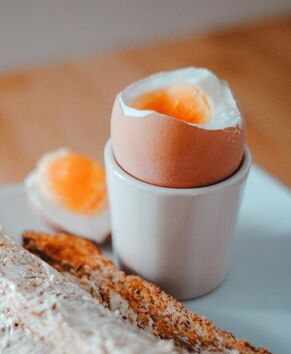 We Have Grown Tired Of:
By the time we reached his room, he had returned to life, and so we stepped back from the wobbly bridge and waited. I wanted to ask him, “What was it like to be dead?” but I didn’t. Perhaps he wouldn’t have known because those brief moments of lifelessness had been a rehearsal. He was moved to ICU where my mother, my sister and I sat stoically waiting for the few minutes twice a day when we could visit him. I suppose we could have done something else taken a walk, taken a break—but we stayed in place, planted there like the spring flowers blooming in the yards outside, but without their colors. I missed him already. He was my hero, my cheerleader, my confidante. I pictured the breakfast room table with an empty chair where he always sat. What would I do without my Daddy? ~ My mind flashed back to my childhood on Yom Kippur, the Day of Atonement. I was ten years old. It was late morning, time for the Yizkor service, when Jews remember the dead. My mother looked around nervously and shooed me out. Children did not attend Yizkor services. I scurried out of the sanctuary and hurried downstairs where other kids and adults who had not lost family members were gathered. I wondered about the mysterious ritual going on upstairs. I could easily have found out because the service was in the prayer book, but I never looked, even at the first line. I didn’t really want to know. Knowing might have been bad luck. My friends and I went outside until it was safe to go back upstairs. ~ Visitation time for ICU patients came and I tucked my childhood memory out of my mind and followed my mother and sister into Daddy’s cubicle. “Where have you all been?” he asked. Those were the last words I heard him say. The next day Mother left to get her hair done. So she could escape? Or so she would look nice for the funeral? Who knew? On day three the doctor said my father’s kidneys were failing. “We can move him out of ICU so you can be with him.” My mother shook her head no. He died alone. It happened that night. I went in to see him for the last time. I don’t know where Mother was but I know she wasn’t with me when I whispered my goodbye. My sister had gone home to rest. I called and told her he was gone and then I waited in the hallway for her to appear. When she rounded the corner and walked toward me, I watched her take her first steps on the bridge I had already crossed. Together we would grieve, and together we would help our mother maneuver the rocky road she would have to travel without our dad. That year, 1987, on the day of Yom Kippur, my sister and I said Yizkor for the first time. Afterward, we visited our father’s grave. In accordance with Jewish custom, we each left a rock on top of the stone to show that we had been there and that, for us, his memory was a blessing. Thelma Zirkelbach has published micro essays, prose poetry, personal essays, memoir and romantic suspense. She enjoys writing short pieces that reflect her life. A native Texan, she lives in Houston.
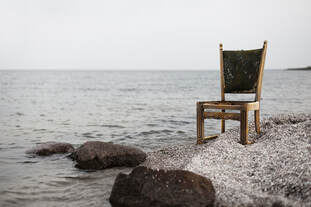 After his death, my grandfather’s easy chair remained at the edge of the Black Sea, just over his property line, in the middle of the Yıldız’ small stretch of coast. He set it there to spite Gülben Yıldız, with whom he enjoyed a rivalry so bitter and ancient that no one quite remembered its origins, though it appeared to predate the fall of the Ottoman Sultanate. The two men had engaged in silent warfare for every decade of my youth in the form of theft, libel, and sabotage, springing leaks in one another’s boats, spreading ruinous rumors, and undercutting the other at market. When the two of them were old and unsteady on their feet, the rivalry culminated in my grandfather’s chair slowly rotting in the Yıldız’ sea air. Afternoons he smoked hand-rolled cigarettes there on their property, afghan on his lap, pointedly ignoring the entire Yıldız brood, who gathered atop the bluff to glare at him. If they started to throw things—fruit and driftwood—he put up the umbrella he brought for the purpose and remained still, smoking and watching the waves. For whatever reason they never tried to move the chair. When grandfather died, old Gülben took over the seat. Gülben didn’t smoke, so his wife Nilgün started bringing him his fishing nets to repair there. Their children had one by one moved away, to America and Germany and Dubai. He hardly had to look at the nets while he worked, his expert hands a blur. I watched him from the edge of his land. The next afternoon I watched again. And the next. I wanted to see how his hands worked so fast. One evening he motioned me over. I sat next to the chair and watched his hands. He didn’t say a word to me but angled the seat so I could see better. When Nilgün brought his dinner she brought a plate for me too, and a small glass of Rakı. When it was time to turn in,Gülben rose and stretched. Before leaving he rested his hand on my shoulder and left it there a long time. I looked up and saw that he had tears in his eyes. We watched the sea together. He is gone now, and so is the chair. But whenever I return to this coast I can feel that hand, its skill and gravity, resting on my shoulder. Saramanda Swigart is thrilled to be writing fiction exclusively after years of writing advertising copy and corporate literature. She completed an MFA in creative writing from Columbia University and a supplementary degree in literary translation. Her short fiction and poetry has appeared or is forthcoming in Reed, The Alembic, Border Crossing, The Broken Plate, Caveat Lector, Clarion, Diverse Arts Project, East Jasmine Review, Euphony, Fogged Clarity, Glint Literary Journal, Green Hills Literary Lantern, The Grief Diaries, Levee Magazine, The Literati Quarterly, OxMag, The Penmen Review, The MacGuffin, Ragazine, Superstition Review, and Thin Air; her work has received an honorable mention from Glimmer Train and a 2017 Pushcart Prize nomination. Saramanda is working on translating some of the more salacious stories from Ovid’s Metamorphoses. Saramanda teaches at City College of San Francisco.
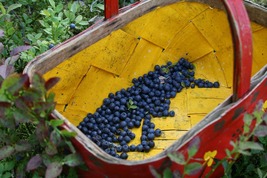 (with Blueberries for Sal by Robert McCloskey) 1991, for my mother She can’t hold my hand once it starts, the metal-free room, the buzz and click of the machine. My small form, swallowed by the white tunnel, the pale, toothless snake. I am barely a bite. She sits beside the MRI and reads aloud, the sound of her voice to keep me still. Today, she will not break open in the anxiety of me, her daughter, five years old and a cancer survivor. She opens Blueberries for Sal and reads as if we are snuggled in the upstairs twin bed, the peeling wallpaper and the maple tree breeze whispering into this cold, aseptic chamber: “We will take our berries home and can them,” said her mother. “Then we will have food for the winter.” Last winter, when the IV had slid into my small hand, I made not one sound. So brave, said the nurse, but it wasn’t bravery. I had endured these metal proddings for as long as memory. It’s not bravery if the pinch is expected, a part of what it costs to be alive. Her mother walked slowly through the bushes, picking blueberries as she went and putting them in her pail. Little Sal struggled along behind, picking blueberries and eating every single one. The garden we planted on a neighbor’s farm: onions, potatoes, three children digging in the dark mud, sun reddening my fair shoulders through a hand-me-down t-shirt, the hose water drunk which we would later learn was non-potable. So much can kill, yet so little does. It was a mother crow and her children, and they stopped eating berries and flew away, saying, “Caw, Caw, Caw.” What did my mother reply to the congregants at our church, to the fragile way they glanced at my thin blonde hair? The other children knew nothing of my scars. A six-year-old boy kissed me beneath a folding table; we held hands and promised to one day marry. How far away is the future to this boy? Can he guess the pain it takes to love someone this much? Little Sal’s mother heard Little Bear tramping along behind and thought it was Little Sal. She kept right on picking and thinking about canning blueberries for next winter. And when my brothers and I turn to beasts in the autumn leaves out back, when the cocker spaniel dives and chases and we are all one pack, will my mother notice the ferocity of life in my shy face? Always so many dishes, so many dirty clothes. —a whole pail of blueberries and three more besides.  Hannah Marshall lives in south-central Illinois, where she works as the advising editor for Greenville University's literary journal, The Scriblerus, and as the poetry editor for Converse College’s literary journal, South 85. Marshall’s poem “This Is a Love Poem to Trees” will appear in The Best American Poetry 2021. Her poems have also been published in Poetry Daily, New Ohio Review, The South Carolina Review, North Dakota Quarterly, and elsewhere. She received her MFA in creative writing from Converse College. |
FLASH GLASS: A MONTHLY PUBLICATION OF FLASH FICTION, PROSE POETRY, & MICRO ESSAYSCategories
All
COVER IMAGE:
|
|
Glassworks is a publication of Rowan University's Master of Arts in Writing 260 Victoria Street • Glassboro, New Jersey 08028 [email protected] |
All Content on this Site (c) 2024 Glassworks
|

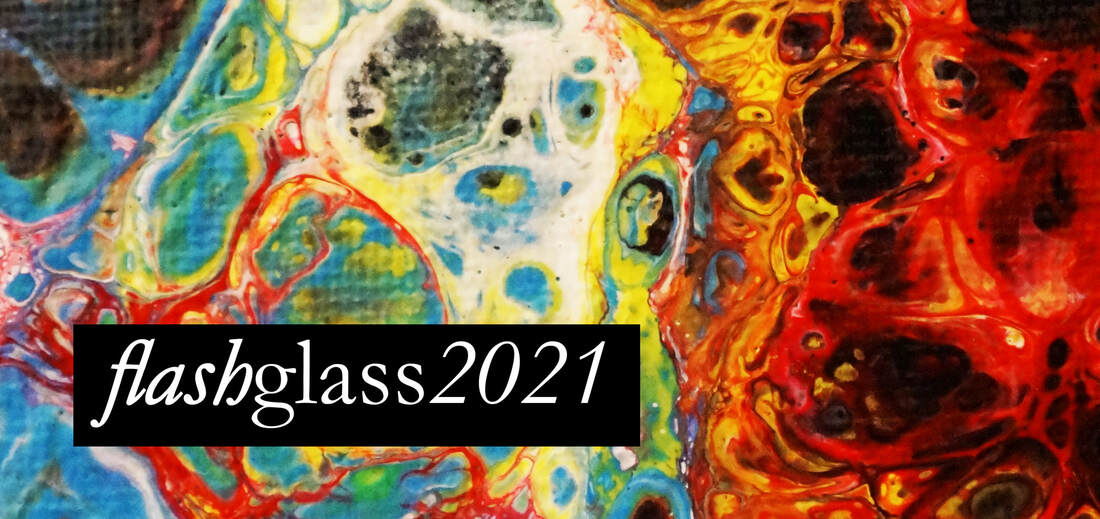
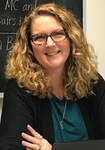
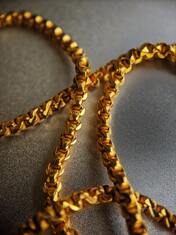
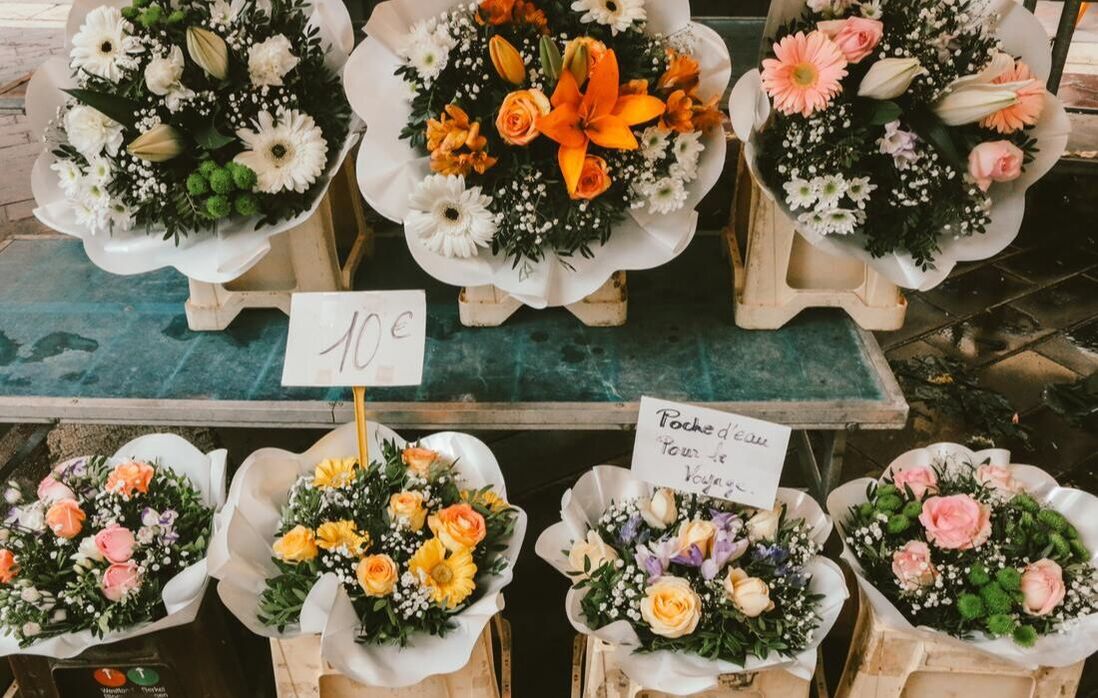


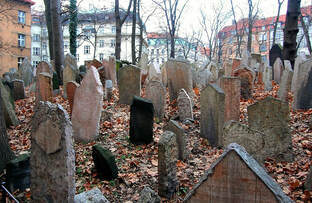
 RSS Feed
RSS Feed
